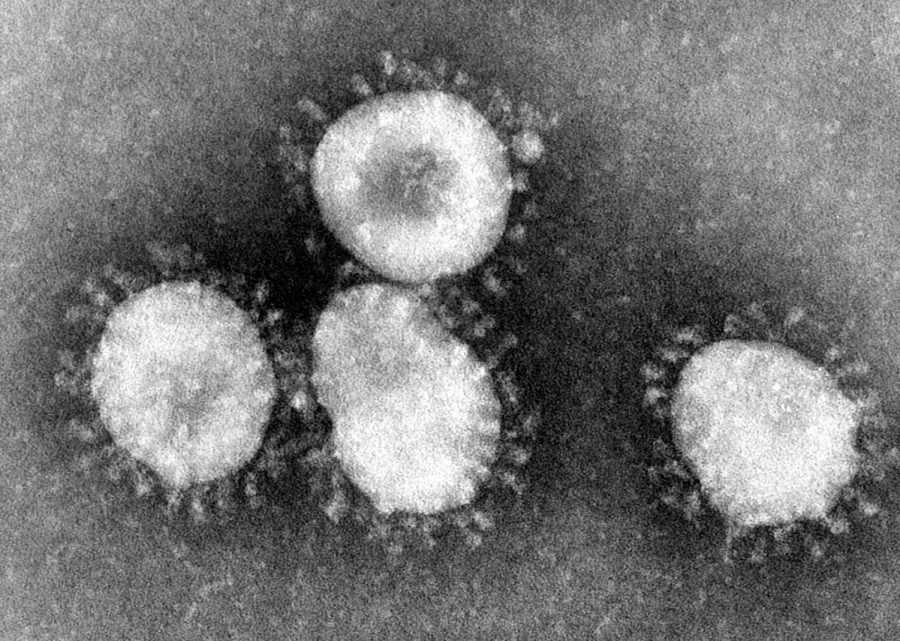Faculty prepares for possible Coronavirus closure
Credit to https://creativecommons.org/licenses/by/2.0/
March 9, 2020
When asked if she thought the global epidemic Coronavirus was on track to infect New Jersey, MCVSD Head Nurse and district crisis team member Dorothy Condon had one word, repeated for emphasis: “Absolutely. Absolutely. Absolutely.”
While the Coronavirus has yet to strike the Garden State as of Mar. 2, Condon says the district crisis team is already communicating with teachers, nurses and custodial staff to prepare for a possible outbreak. For now, the team encourages basic preventive measures such as washing hands and wiping down desks. But in a worst case scenario, MCVSD will close schools if directed to do so by a superior power.
“It would [take] a mandate honestly from our local health department. You can’t just shut down if you have one case,” Condon said. “We’re going to get our guidelines from the CDC and our local health departments. That’s straight down the line.”
According to the New York Times, the U.S. government has confirmed 88 cases of the virus as of Mar. 2, although New Jersey has yet to discover any infections. But only miles away, the neighboring state of New York confirmed their first case in Manhattan, a major city and the site of an upcoming CHS trip to Columbia University. This development has raised concern for sophomore Lana Tomchuk of Middletown.
“I’m going on the Inkblot/Yearbook trip [to Columbia] and that’s kind of scary. We’ll be at a national convention with people all over the country,” Tomchuk said. “We’ll be in Manhattan, taking public transport. That’s where things get caught.”
“Anytime we’re going to be putting students in with other people or larger groups, we have to be concerned with that,” Principal James Gleason said about the trip. “[Columbia University is] bringing outside people to their campus. I’m sure they’re concerned as well.”
Back home at CHS, Gleason said the school is planning to transition to Google Classroom and online-based instruction in the event of a closure. He first surveyed how many teachers could operate Google Classroom, and then arranged training for those who didn’t. The second step was working with students to determine if any lacked computers, smartphones or WiFi at home.
Gleason explained that the district may be able to loan out a small number of chromebooks to help students in need, but they’re still unsure of the exact steps to help those without home internet. However, he believes that student access overall isn’t a pressing issue at the moment, based off a survey that was sent out on Mar. 3. As of his interview on the same day, about “90% of the student population” had responded.
“At this particular time, everybody had a phone, so quick analysis: Everybody has access,” Gleason said.
Gleason cited the challenge of recreating certain hands-on experiences and in-class projects at home as a major difficulty in the plan.
“[We need to] have a continuity of education plan to at least keep people engaged and keep things moving along, and also understand that some things can’t be replicated at home,” he said. “How do you do a morning news announcement if you’re not in the TV studio?”
“I feel pretty prepared. Most of our work is on Google Classroom anyway. It’s not much of a change,” Junior Sara Burgi of Matawan said about the plan. “Definitely doing Google Hangouts would be a lot different. But just lessons on Classroom and assignments there…than that’d basically be back to normal.”
But for sophomore Hannah Schwartzberg of Ocean, such a transition wouldn’t be so easy, as she believes she would be held back by both physical and psychological constraints.
“I do not have the materials needed at home, most things cost money which I could not pay for,” Schwartzberg explained. “I feel like [Google Classroom] wouldn’t give the same type of learning environment if you don’t have people to consult if you’re confused. It would mess up a lot of students.”
While biology and health teacher Leah Morgan believes the virus will eventually “reach all corners,” she says that as long as everyone remains careful and responsible, there’s nothing to fear.
“Eighty percent of the population that gets the Coronavirus recovers. It’s a mild infection, much like the flu. There’s not a whole lot to worry about,” Morgan said. “You keep your hands and body pretty clean, you stay home when you’re sick, and everybody should be okay.”
Like Morgan, Gleason also isn’t extremely worried about the virus due to the precautions CHS is organizing.
“I still think that time is on our side. But we’re putting pieces together,” he said. “This all an “if” statement, you know. Will we be closed? I have no idea. I think the point is that we’re prepping as if it could happen and hoping for the best.”





